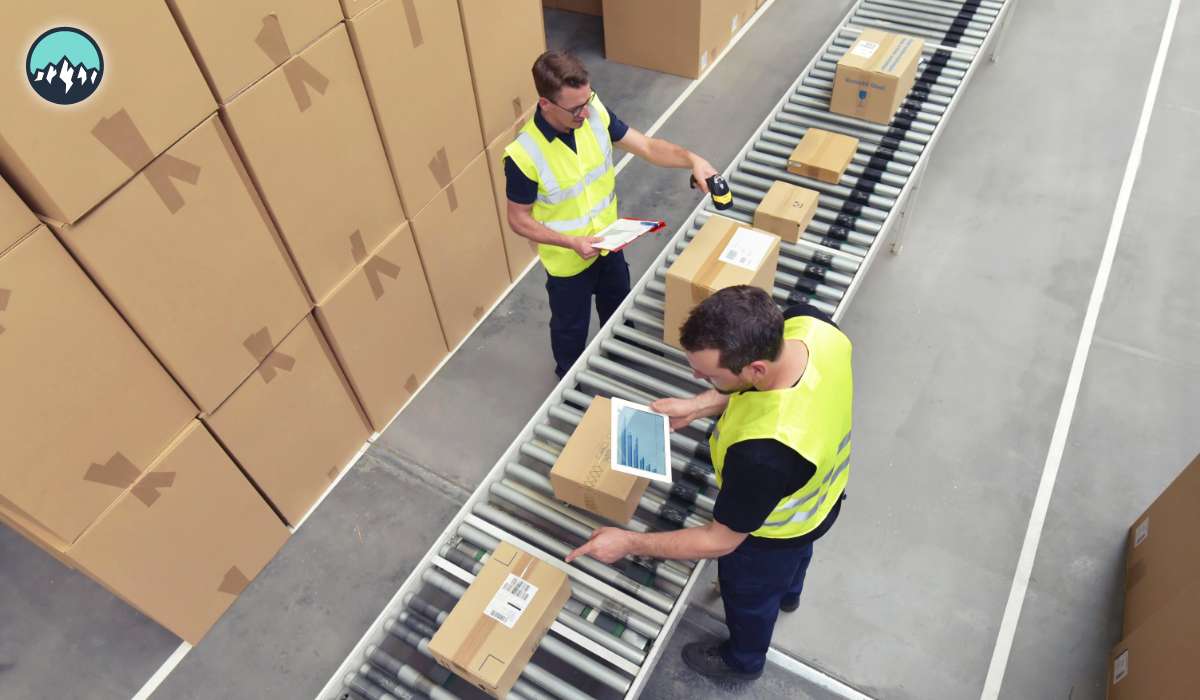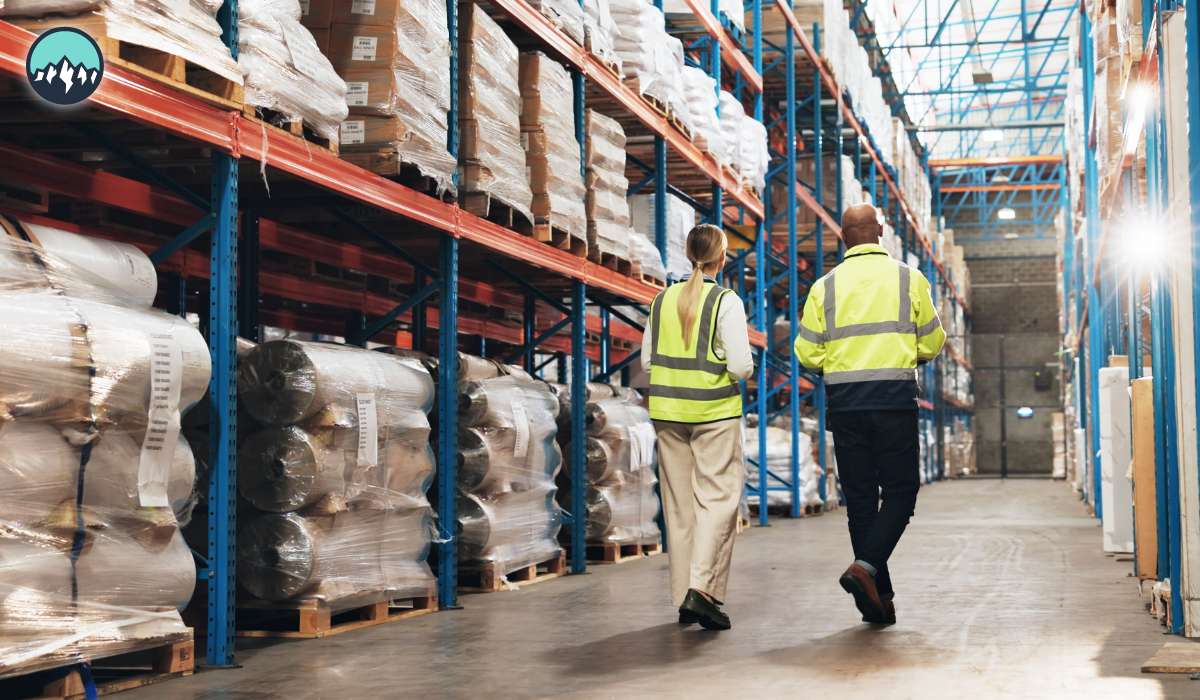Discover the Top Warehouse Automation & Logistics Jobs in Canada
08 May 2025

Jobs in Canada’s booming e-commerce sector and growing supply chain demands have created a surge in warehouse automation and logistics job opportunities. As businesses strive for greater efficiency, they increasingly use advanced technologies like robotics, AI, and automated storage systems. This shift transforms traditional warehouse roles and opens many career paths for job seekers worldwide. Whether you're interested in operating cutting-edge machinery, managing inventory systems, or coordinating large-scale logistics operations, you have a role in this evolving industry.
In this guide, we’ll explore top jobs in Canada's warehouse automation and logistics industry and how you can get started.
Does Canada Need Warehouse Automation and Logistics Workers?

Yes, Canada urgently needs warehouse automation and logistics workers to meet the growing demands of e-commerce, retail, and manufacturing sectors. According to the Canadian Supply Chain Sector Council, nearly 25% of the current supply chain workforce is expected to retire by 2025, creating a significant labour gap. At the same time, the rise in online shopping and the need for faster, more efficient delivery systems have prompted companies to invest heavily in automation technologies.
This has created new roles in robotics operations, inventory control, logistics coordination, and systems maintenance. Canada's strategic position in global trade, especially with access to major ports and rail networks, means that demand for skilled logistics professionals is exceptionally high in provinces like Ontario, British Columbia, and Alberta.
Canadian employers seek technical and entry-level talent to support this rapidly evolving industry. For job seekers, this translates into strong employment prospects and opportunities for upskilling in a high-demand field.
Top 5 Warehouse Automation and Logistics Sectors in Canada

Canada’s warehouse automation and logistics industry is evolving rapidly, with five key sectors leading the way in adopting advanced technologies to improve efficiency, accuracy, and scalability.
E-commerce and Retail
E-commerce and retail are Canada's largest and most dynamic sectors, driven by the growth of online shopping. Companies like Amazon, Walmart, and Canadian Tire have invested in automated fulfillment centres using robotics, AI, and intelligent inventory systems to meet rising consumer demand and reduce delivery times.
Food and Beverage Distribution
Food and Beverage Distribution is another critical sector, especially with Canada’s vast geography and need for temperature-controlled logistics. Automation in this industry ensures perishable items are stored and transported efficiently while complying with health and safety regulations. Major players like Sobeys and Metro have modernized their distribution centres with robotic pickers and automated racking systems.
Manufacturing and Industrial Supply
Manufacturing and Industrial Supply relies heavily on just-in-time logistics. Automated warehouses help manufacturers reduce waste, minimize downtime, and improve supply chain visibility. Sectors in Canada like automotive, aerospace, and electronics are in charge of investing in smart warehousing solutions.
Pharmaceuticals and Healthcare Logistics
Pharmaceuticals and Healthcare Logistics demand strict regulatory compliance, security, and accuracy. Automation technologies help manage sensitive products, track inventory, and ensure timely delivery to hospitals and pharmacies.
Transportation and Freight Services
Transportation and Freight Services, including rail, trucking, and air cargo, form the infrastructure of Canada’s supply chain. Logistics providers are automating sorting hubs and implementing real-time tracking to optimize freight movement nationwide.
These sectors create strong demand for skilled workers and offer diverse careers in Canada’s automation-driven logistics market.
Top Warehouse Automation and Logistics Jobs in Canada

If you're considering applying for warehouse automation and logistics jobs in Canada, it's essential to understand which jobs in Canada are in demand across the top sectors. Using figures from Canada’s Job Bank, we’ve compiled a list of the most promising warehouse automation or logistics job opportunities with National Occupational Classification (NOC) codes.
E-commerce and Retail
E-commerce and retail are at the forefront of warehouse automation in Canada, driven by rising online shopping demands. Companies invest in robotics and smart systems to streamline fulfillment, reduce delivery times, and enhance customer satisfaction.
| Job Title | NOC Code | Average Annual Salary (CAD) |
|---|---|---|
| Automation Systems Technician | 22301 | 89,221.34 |
| Logistics Coordinator | 13201 | 76,279.65 |
| Warehouse Supervisor | 12013 | 75,722.01 |
| E-commerce Fulfillment Specialist | 62101 | 75,702.96 |
| Shipper and Receiver | 14400 | 56,789.42 |
| Material Handler | 75101 | 56,789.42 |
| Retail Warehouse Worker / Order Picker | 65102 | 42,853.28 |
Food and Beverage Distribution
Canada’s food and beverage distribution sector relies heavily on precise logistics and temperature-controlled warehousing. Automation ensures product safety, compliance with health regulations, and faster supply chain turnaround.
| Job Title | NOC Code | Average Annual Salary (CAD) |
|---|---|---|
| Distribution Warehouse Supervisor | 12013 | 75,716.00 |
| Food & Beverage Logistics Coordinator | 13201 | 67,609.91 |
| Cold Storage Warehouse Worker / Material Handler | 75101 | 56,788.24 |
| Shipper and Receiver | 14400 | 56,796.51 |
| Forklift Operator | 75101 | 56,813.62 |
| Labourer in Food and Beverage Processing | 95107 | 52,226.11 |
Manufacturing and Industrial Supply
In manufacturing, just-in-time delivery and efficient inventory management are critical to productivity. Automated warehouses help streamline operations, reduce costs, and maintain the flow of raw materials and finished goods.
| Job Title | NOC Code | Average Annual Salary (CAD) |
|---|---|---|
| Warehouse Manager | 70012 | 117,093.49 |
| Industrial and Manufacturing Engineer | 21321 | 116,500.24 |
| Maintenance Electrician /Mechanic | 72200 | 94,768.63 |
| Automation Technician /Technologist | 22301 | 89,352.04 |
| Logistics and Inventory Coordinator | 13201 | 76,306.64 |
| Supply Chain Supervisor | 12013 | 75,768.97 |
| Shipper and Receiver | 14400 | 56,796.51 |
| Material Handler | 75101 | 56,789.42 |
Pharmaceuticals and Healthcare Logistics
The pharmaceutical and healthcare logistics sector demands accuracy, speed, and regulatory compliance. Automation supports safe handling, real-time inventory tracking, and timely distribution of life-saving products.
| Job Title | NOC Code | Average Annual Salary (CAD) |
|---|---|---|
| Cold Chain Logistics Specialist | 10012 | 151,292.94 |
| Pharmaceutical Warehouse Supervisor | 92011 | 117,765.09 |
| Quality Assurance Technician | 22231 | 84,724.35 |
| Healthcare Logistics Coordinator | 13201 | 76,349.02 |
| Medical Supply Shipper and Receiver | 14400 | 66,479.84 |
| Inventory Control Specialist | 14403 | 62,255.39 |
| Material Handler (Medical Warehouse) | 75101 | 59,541.57 |
Transportation and Freight Services
Transportation and freight services are the backbone of Canada’s supply chain network. Automation in sorting, tracking, and cargo handling is transforming the efficiency of rail, road, air, and sea freight operations.
| Job Title | NOC Code | Average Annual Salary (CAD) |
|---|---|---|
| Logistics Manager | 70012 | 136,669.53 |
| Freight Coordinator / Dispatcher | 13202 | 76,350.87 |
| Transportation Logistics Coordinator | 13201 | 76,350.87 |
| Warehouse Supervisor | 12013 | 75,807.46 |
| Customs Broker | 13200 | 69,432.51 |
| Transport Truck Driver | 73300 | 67,686.69 |
| Shipper and Receiver | 14400 | 56,796.51 |
| Material Handler (Freight/Warehouse) | 75101 | 56,865.22 |
FAQs
What Skills Are In-Demand For These Jobs in Canada?
In-demand skills include inventory management, data entry, forklift operation, and familiarity with warehouse management systems (WMS). Employers also value soft skills like teamwork, time management, and problem-solving. As automation grows, technical skills in robotics and supply chain software are increasingly important.
Are There Any Certifications That Can Help Me Get a Job in This Field?
Yes, certifications such as forklift operation, WHMIS (Workplace Hazardous Materials Information System), and First Aid/CPR can improve your job prospects. Consider supply chain management certifications from organizations like CITT or APICS for more advanced roles. Employers also recognize post-secondary training in logistics, operations, or warehouse automation technology.
What Cities in Canada Have the Most Warehouse Automation and Logistics Job Opportunities?
Major urban centres like Toronto, Vancouver, Calgary, and Montreal offer the highest concentration of jobs due to large distribution hubs and e-commerce activity. Mississauga and Brampton in Ontario are also hotspots for logistics operations. These cities host many fulfillment centres, transport depots, and manufacturing plants.
How Can I Get Into a Career in Warehouse Automation or Logistics in Canada?
Start with an entry-level position such as a warehouse associate or shipper/receiver, often requiring a high school diploma and on-the-job training. Gain experience and pursue relevant certifications to move into supervisory or technical roles. Alternatively, completing a supply chain management or logistics college program can fast-track your career in Canada.




